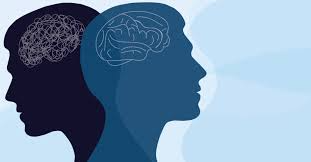In today’s fast-paced world, mental health has become an increasingly important topic of conversation. From stress and anxiety to depression and other mental disorders, it’s essential to understand the complexities of mental health and how to seek help when needed. In this comprehensive guide, we’ll explore various aspects of mental health, including common disorders, treatment options, and resources for seeking support.
Introduction
Mental health encompasses our emotional, psychological, and social well-being, influencing how we think, feel, and act. It’s crucial for overall health and quality of life, yet mental health issues are often stigmatized and overlooked. By raising awareness and providing accurate information, we can promote understanding and support for those struggling with mental health challenges.
Understanding Mental Health
Mental health is influenced by a combination of biological, environmental, and genetic factors. While everyone experiences ups and downs in their mental health, some individuals may develop mental health disorders that require professional intervention. Common mental health disorders include:
1. Anxiety Disorders: Anxiety disorders are characterized by excessive worry, fear, or nervousness that can interfere with daily functioning. Examples include generalized anxiety disorder (GAD), panic disorder, and social anxiety disorder.
2. Mood Disorders: Mood disorders, such as depression and bipolar disorder, involve disturbances in mood regulation, leading to persistent feelings of sadness, hopelessness, or mood swings.
3. Psychotic Disorders: Psychotic disorders, like schizophrenia, involve disruptions in thinking, perception, and behavior, often resulting in hallucinations, delusions, and disorganized thoughts.
4. Eating Disorders: Eating disorders, such as anorexia nervosa, bulimia nervosa, and binge-eating disorder, involve unhealthy attitudes and behaviors related to food, body weight, and shape.
5. Substance Use Disorders: Substance use disorders involve problematic patterns of alcohol or drug use that lead to significant impairment or distress.
Seeking Help
If you or someone you know is struggling with mental health issues, it’s essential to seek help from qualified professionals. Here are steps you can take to get the support you need:
1. Talk to a Doctor: Start by discussing your concerns with a primary care physician or mental health provider. They can assess your symptoms, provide a diagnosis if necessary, and recommend appropriate treatment options.
2. Consider Therapy: Therapy, also known as counseling or psychotherapy, involves talking to a trained therapist or counselor about your thoughts, feelings, and behaviors. Therapy can help you develop coping skills, improve communication, and address underlying issues contributing to your mental health concerns.
3. Explore Medication Options: In some cases, medication may be prescribed to manage symptoms of mental health disorders. Psychiatric medications, such as antidepressants, mood stabilizers, and antipsychotics, can help regulate brain chemistry and alleviate symptoms.
4. Connect with Support Groups: Support groups provide an opportunity to connect with others who are experiencing similar challenges. Whether in-person or online, support groups offer a sense of belonging, validation, and encouragement.
5. Practice Self-Care: Self-care activities, such as exercise, meditation, journaling, and spending time in nature, can support overall mental well-being. Prioritize activities that nourish your mind, body, and soul.
Frequently Asked Questions (FAQs)
Q1: How common are mental health disorders? A1: Mental health disorders are more common than you might think. According to the World Health Organization (WHO), approximately 1 in 4 people worldwide will experience a mental health disorder at some point in their lives.
Q2: What are some signs that I or someone I know may be struggling with a mental health issue? A2: Signs of mental health issues can vary widely but may include changes in mood, behavior, sleep patterns, appetite, or social interactions. It’s essential to pay attention to significant changes in functioning and seek help if needed.
Q3: Is it possible to recover from a mental health disorder? A3: Yes, recovery from mental health disorders is possible with appropriate treatment and support. Recovery looks different for everyone and may involve a combination of therapy, medication, lifestyle changes, and support from loved ones.
Q4: How can I support a friend or family member who is struggling with their mental health? A4: Offer your support, empathy, and encouragement to your loved one. Listen without judgment, validate their feelings, and help them access resources and professional help as needed.
Q5: Where can I find more information and resources about mental health? A5: There are many reputable sources of information and support for mental health, including mental health organizations, online resources, helplines, and mental health professionals. Websites like the National Alliance on Mental Illness (NAMI) and the Substance Abuse and Mental Health Services Administration (SAMHSA) offer valuable resources and information.

